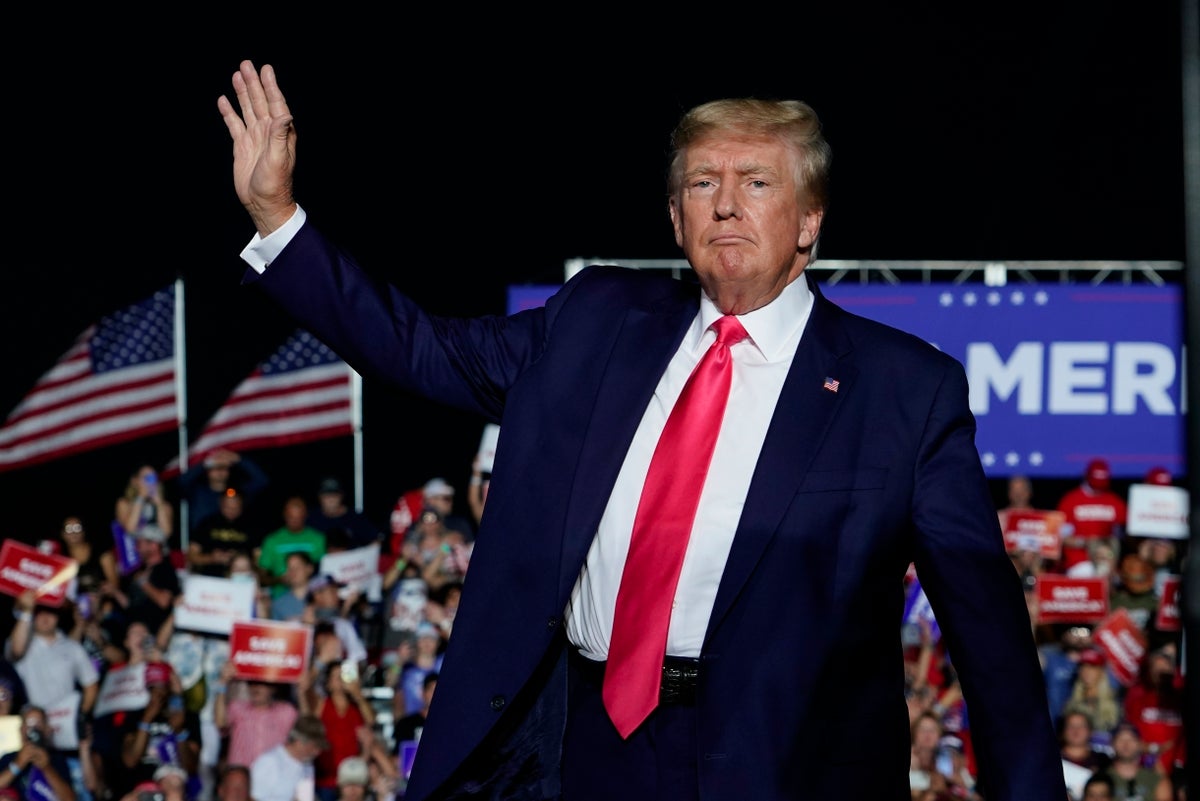
Donald Trump is on his way to a second arrest in less than three months.
The Independent has learned that a federal grand jury indicted the former president on 8 June on charges stemming from his alleged unlawful retention of national defence information, adding another criminal case to the legal pressure against the twice-impeached former president as he seeks to win his party’s nomination in next year’s Republican presidential primary.
Mr Trump himself first revealed the indictment in a series of posts on his Truth Social platform, just one day after The Independent reported that federal prosecutors had planned to ask a grand jury to return an indictment against him on Thursday.
Mr Trump was indicted on seven charges that, if he is convicted, could carry a maximum combined sentence of up to 100 years in prison, ABC News reported, citing sources.
The charges levied against him include willful retention of national defence information, conspiracy to obstruct justice, withholding a document or record, corruptly concealing a document or record and concealing a document in a federal investigation, all of which carry 20 years of maximum penalty, according to ABC.
The other two charges carrying a maximum sentence of five years are scheme to conceal and false statements and representation.
Following his indictment, Mr Trump declared that he was “an innocent man”. “This is election interference and continuation of the greatest witch hunt of all time,” he ranted.
“The corrupt Biden Administration has informed my attorneys that I have been Indicted, seemingly over the Boxes Hoax,” he wrote, using the phrase he has frequently used to describe the long-running probe.
In a subsequent post, Mr Trump said he had been summoned to appear at a federal courthouse in Miami on Tuesday, 13 June, at 3pm ET.
At that time, Mr Trump is expected to be placed under arrest and booked before appearing before a judge.
It is unlikely that Mr Trump will be jailed following the arraignment. Instead, the proceedings are expected to follow what happened in early April when Mr Trump appeared in Manhattan court to face criminal criminal charges following Manhattan District Attorney Alvin Bragg’s investigation into hush payments leading up to the 2016 presidential election.
The charges come just days after a last-ditch attempt by his legal team to convince Department of Justice officials not to seek charges against him in the classified documents probe, which began early last year after National Archives and Records Administration officials discovered more than 100 documents bearing classification markings while inventorying a group of 15 boxes that were retrieved from Mr Trump’s Palm Beach, Florida residence.
That discovery led Nara officials to notify the Department of Justice, which kicked off an investigation into how the documents ended up at Mr Trump’s property.
Throughout the investigation, prosecutors and investigators harboured concerns that the ex-president was not being truthful about whether he had returned any and all classified documents in his possession to government custody as required under the Presidential Records Act, a post-Watergate-era law which states that all records of a presidential administration are the property of the government and must be turned over to Nara when a president leaves office.
But the classified nature of the records at issue added another wrinkle to the dispute between Mr Trump and the government he led from January 2017 to January 2021.
At times, the ex-president has claimed that he had used the sweeping classification and declassification authority afforded to the American chief executive to declassify any record he took with him to his Palm Beach home at Mar-a-Lago, the 1920s-era mansion he purchased in the 1990s and subsequently turned into a private social club.
No evidence has emerged that any such order was ever issued, and in audio recordings obtained by prosecutors, Mr Trump is said to have acknowledged that he did not declassify certain records that were in his possession long after his authority to possess them expired.







